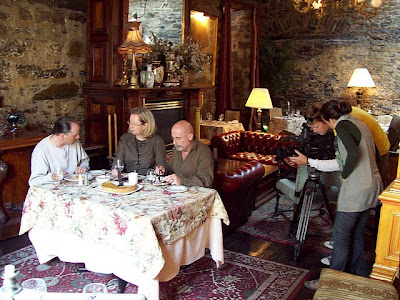
When I was a few months into my pregnancy and feeling alone, I came across this quote by Harriet Lerner:
“We are never the first in our family to wrestle with a problem, although it may feel that way. . . . Learning how other family members have handled their problems similar to our own down through the generations, is one of the most effective routes to lowering reactivity and heightening self-clarity.”
I thought, “Yeah, right. Who does this happen to? No one else in my family has been abandoned three months into a planned pregnancy.”
I kept reading:
“If we do not know about our own family history, we are more likely to repeat past patterns or mindlessly rebel against them, without much clarity about who we really are, how we are similar to and different from other family members, and how we might best proceed in our own life.”
Since I was already passionate about genealogy and family history (I am president of a personal history company), I decided to test out this idea. I re-examined my family tree to see if I had overlooked any single mothers and to find out what, if anything, I could learn from them.
To my great surprise, there were more than a few, and the details of their stories left me in awe. For the purpose of brevity, I will share only two here:
The first was my great-grandmother, Ellen. She lived for a time in the Mormon Mexican Colonies (which explains my affinity for Mexico). She had four daughters with her husband, but after the fourth was born, he accused Ellen of cheating on him. He said that Violet was not his child. With this announcement, he left her and moved back to the United States.
Things in Mexico at this time (early 1900s) were tense. Pancho Villa, the revolutionary general in Chihuahua, was suspicious of the white Mormon settlers. According to the colony’s history, he threatened to kill the white people if they did not leave. So Ellen and her four daughters, and the rest of their colony, fled Mexico on foot after only a few days’ notice. Ellen returned to her parents' home in Cedar City, Utah, and lived with her family. Sometime later, she was reunited with her childhood sweetheart, married him, and had four sons—one of which is my grandfather.
The next story is from my father’s side. My father was adopted by his stepfather (meaning my grandmother was a single mom for a while, too), and I had been trying to track his biological father’s line for some time. A few years before, I had already discovered the big surprise—I (with naturally blonde hair and freckles) am of slave ancestry (which explains my love for African American heritage). I found Maria Johns, my third-great-grandmother, in an 1860 census that listed her as a single black woman living with her young mulatto daughter in a small town in western Pennsylvania. Maria's occupation was “washer woman,” and she was listed as owning property.
If your hair isn’t already blown back, here are a few more details. Maria was born in Virginia, so she was almost certainly born into slavery. Her child was mulatto, and she was never married, so I can only speculate about what master may have impregnated her and whether she was willing. I can only speculate about how she escaped or earned her freedom. But I do know that 1860 was pre–Emancipation Proclamation, and it was a time when even white women rarely owned property.
What this tells me about Maria Johns is that she was awesome.
I found a few clues and rumors that indicate that Maria was a Quaker, which I believe; Quakers lived in her area of Pennsylvania and were the only group that would be accepting enough to embrace a black woman in their community and let her own property.
After learning these stories about my ancestors, I felt much less alone. I felt connected to and inspired by these powerful women. I looked to what Ellen and Maria (and others I found) did in their times of trial, and I saw that those who turned to their family and their faith were the most successful. I knew I would be wise to do the same.
By meditating on these and other strong women in my life stream, I felt them draw nearer to me. They helped me and lifted me up. When my daughter was born, I felt them all surrounding me—my mother, my grandmother, Ellen, Maria, and many more I didn’t even know, but who knew me and knew my daughter.
This was the first time I had really applied what my ancestors' stories taught me.Since then, during each major struggle in my life, I consult my family history to see what I can learn. The results continue to amaze and humble me.
Felice Austin is (among other things) a freelance writer and president of Memoirs, Ink, a company who shares The Generations Project's ambtion to rediscover, share, and preserve meaningful family legacies.

Harriet Lerner, The Dance of Anger (Harper Paperbacks, 2005), 117–18.










